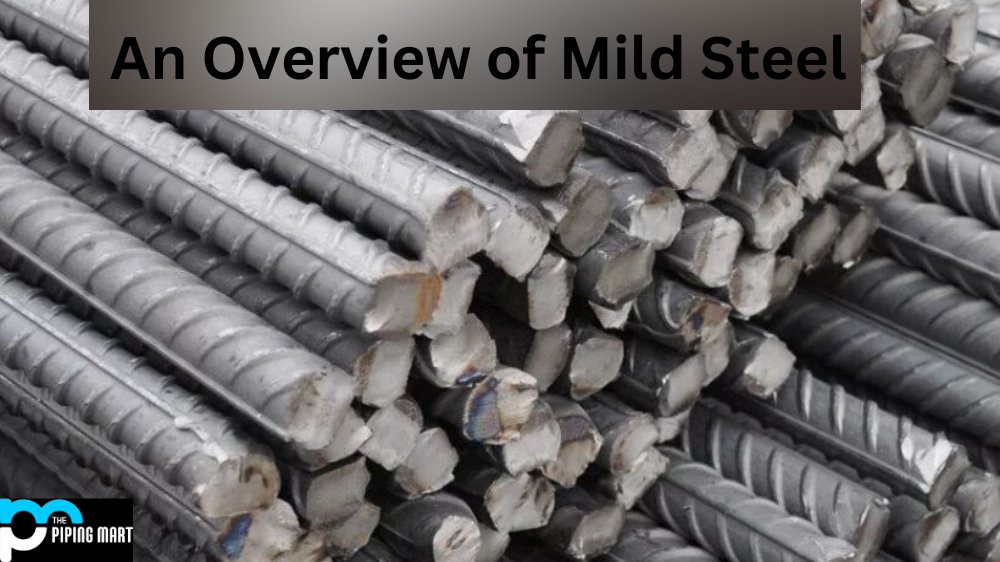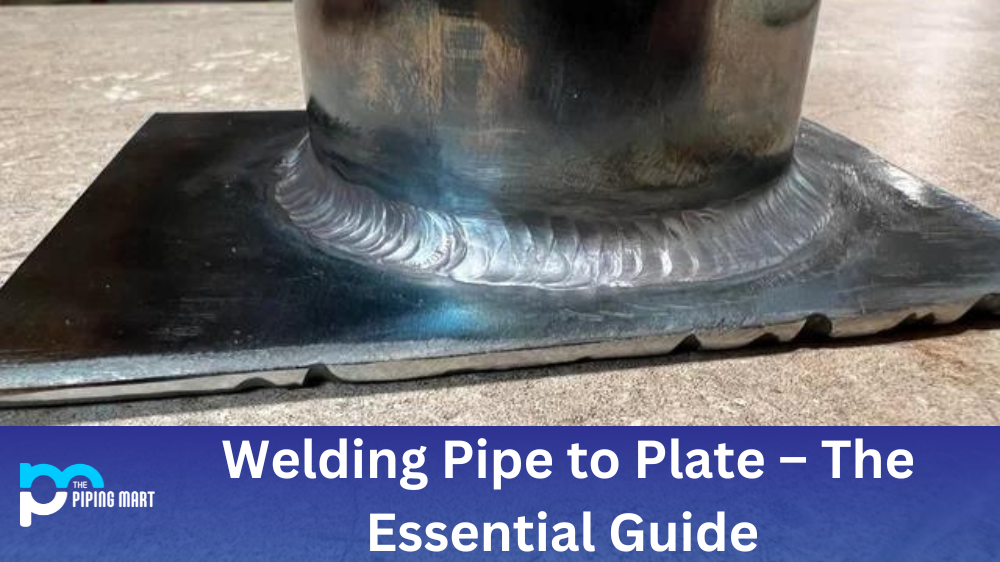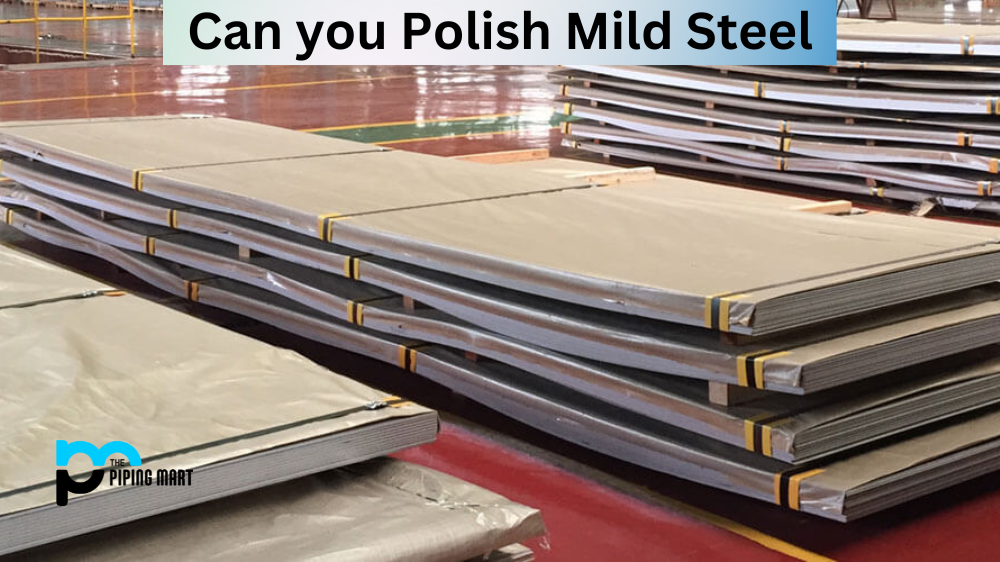Mild Steel is known for its strength and durability. It also has good weldability and machinability, making it easy to fabricate into different shapes and sizes. This makes it ideal for use in many industries, such as aerospace, construction, and automotive manufacturing. The strength of mild Steel also means that it can be used to create structures that can withstand heavy loads or harsh weather conditions.
What is Mild Steel?
Mild Steel is a type of low-carbon iron alloy which has been around for centuries and used in a variety of applications. In fact, the Romans were one of the first users of mild steel and its ability to be moulded into many shapes has meant it has consistently featured in construction projects since then. Mild Steel remains popular today due to its strong weldability and its resistance to corrosion, making it an excellent choice for almost any project where strength or chemical protection are a priority. Its relative lightness also makes it ideal for mobile applications, such as aircraft frames or cabinetry. Ultimately, Mild Steel is a versatile material that offers incredible value for many types of projects.
Mild steel composition
Mild steel is an alloy made of iron and carbon that has a balanced composition, making it a versatile and strong material. Mild steel’s high durability enables it to be used in construction jobs ranging from building sports stadia to bridges, as well as being a popular choice for car bodywork parts. It can also be crafted into useful items like utensils or pipes and is often used by industry due to its cost-effective nature. Mild steel’s iron and carbon make it malleable, yet durable enough for most applications; its ultimate tensile strength – the maximum amount of stress the steel can endure before breaking – is determined by these elements in its composition.
Mild Steel Benefits
Another benefit of mild Steel is its cost-effectiveness compared to other metals. Because mild Steel contains fewer alloys than different types of Steel, its cost per pound tends to be lower than that of other materials like stainless steel or aluminum. This makes it an attractive option for those looking for a budget-friendly solution without sacrificing quality or performance.
Increased Strength
Mild steel is an alloy of iron and carbon that is known for its increased strength compared to pure iron. This makes it an ideal material for a variety of applications, such as construction and manufacturing.
Increased Durability
Mild steel is also more durable than pure iron, making it less susceptible to damage from wear and tear. This makes it ideal for applications where the material will be subject to high levels of stress, such as in automotive or aerospace engineering.
Increased Corrosion Resistance
Another benefit of mild steel is its increased corrosion resistance. This is due to the presence of a thin layer of oxide on the surface of the metal, which protects it from rust and other forms of corrosion.
Increased Weldability
Mild steel is also more weldable than pure iron, making it easier to join together using welding techniques. This makes it ideal for applications where a strong joint is required, such as in piping or structural engineering.
Lower Cost
Mild steel is typically cheaper than other types of steel, such as stainless steel or tool steel. This makes it a more cost-effective option for a variety of applications.
Versatile Material
Mild steel is a versatile material that can be used in a wide range of applications. It is commonly used in the construction industry, but can also be used in the manufacturing of cars, appliances, and even some medical devices
Mild Steel Properties
Strength and Durability
Mild Steel is known for its strength and durability, making it a popular choice for structural components like beams, columns, and braces. This is due to its high tensile strength, ranging from 400 to 700 MPa (58-103 ksi). Mild Steel also has excellent fatigue resistance, meaning it can handle even the most extreme stress cycles without any lasting damage. The combination of these qualities makes mild Steel an ideal material for automotive parts and other components subject to frequent loading and unloading.
Corrosion Resistance
Another major benefit of mild Steel is its corrosion resistance. While not as corrosion-resistant as stainless Steel or some other alloys, mild Steel still offers good protection against rusting when exposed to moisture or humid environments. This makes mild Steel an excellent choice for outdoor structures like bridges or buildings in coastal regions where salt spray may be present. Additionally, the strong bond between the protective coating (paint) on mild Steel and the metal itself helps increase its corrosion resistance even further.
Weldability
Mild Steel is highly weldable due to its low carbon content. This means it can be easily joined using manual welding processes like stick welding or more advanced methods such as arc welding or gas metal arc welding (GMAW). Additionally, because it does not contain hardening elements such as chromium or nickel, welders do not need to worry about dealing with brittleness after heating during welding. As a result, there are fewer chances for error when joining pieces together using mild Steel compared to other materials with higher amounts of hardening elements present in their composition.
Ductility
Mild steel is ductile, meaning that it can be easily formed into a variety of shapes. This makes it an ideal material for a wide range of applications, such as pipes, tubing, and wire.
Strength
Mild steel also has a high strength-to-weight ratio, making it ideal for use in construction and other applications where weight is a concern.
Affordability
Mild steel is one of the most affordable metals on the market, making it an attractive option for a wide range of projects.
Versatility
Mild Steel also stands out from other materials due to its versatility; given its malleability, it can be bent into almost any shape desired without compromising its structural integrity or durability. This makes it perfect for creating custom parts for various purposes, such as furniture frames, automotive parts, pipes, etc., where the desired shape cannot be achieved through traditional means such as cutting or welding. For this reason, mild Steel is highly sought after by both industrial companies and everyday consumers.
Mild Steel Uses
Construction
Mild steel is often used in construction for the framing, supports, and reinforcements of buildings. It is also used in the construction of bridges, as it is able to support a large amount of weight.
Automotive
Mild steel is also commonly used in the automotive industry. It is used to create the frames and bodies of cars and trucks, as well as a variety of other parts such as engine blocks and exhaust systems.
Machinery
Mild steel is a common material used in the manufacturing of machinery. It is used to create a variety of parts such as gears, shafts, and bearings. Additionally, mild steel is often used in the construction of industrial equipment such as cranes and bulldozers.
Storage Tanks
Mild steel is often used to construct storage tanks for a variety of purposes. These tanks can be used to store water, oil, chemicals, or other materials. Mild steel tanks are also often used in the food and beverage industry for storing products such as milk or wine.
Pipelines
Mild steel is commonly used in the construction of pipelines. This material is able to transport a variety of liquids and gases over long distances without leaking or corroding. Additionally, mild steel pipelines are often buried underground, making them less susceptible to damage from external sources.
Furniture
Mild steel is sometimes used in the construction of furniture, particularly outdoor furniture such as benches or picnic tables. This material is durable and weather-resistant, making it ideal for use in furniture that will be exposed to the elements
Conclusion
Mild Steel is an incredibly versatile material with many uses in industrial applications and everyday life. It offers excellent strength and durability while being cost-effective compared to other metals. Its malleability allows it to be easily shaped into just about any form needed – making it perfect for custom fabrication projects! Whether you’re looking for something more affordable than stainless steel or aluminum or just need a strong material that can stand up against harsh weather conditions, mild Steel may be just what you’re looking for!

Pipingmart is a B2B portal that specializes in metal, industrial and piping items. Additionally, we share the latest information and information about materials, products and various types of grades to assist businesses that are involved in this business.




